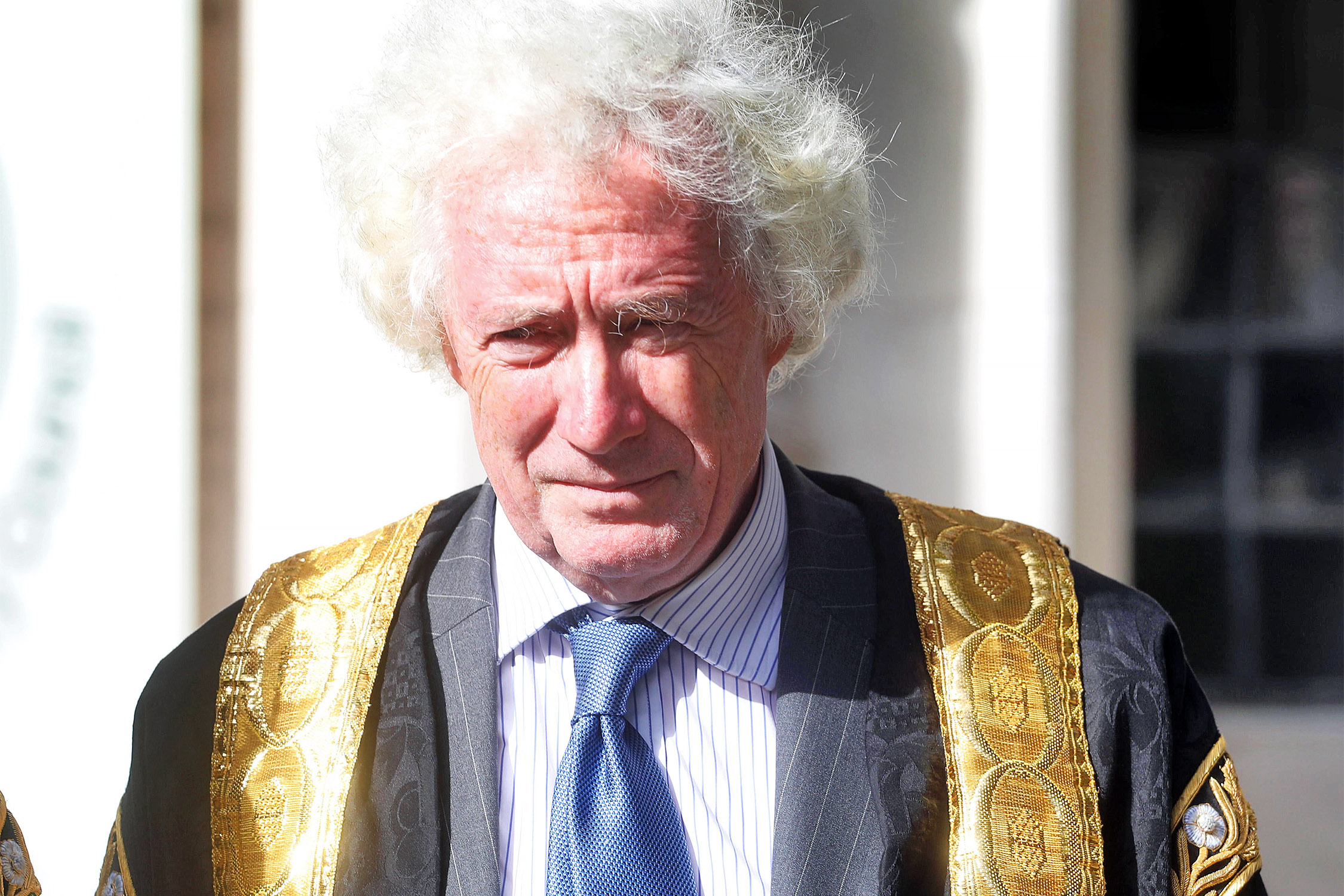Hong Kong’s status as global financial hub further weakened after more foreign judges resign
High-profile British Judge Lord Sumption’s resignation from Hong Kong’s highest court raises concerns about the state of the rule of law in the city, which is allegedly becoming a ‘totalitarian state’ under the Chinese Communist Party’s (CCP) ‘invisible’ control.
Following his resignation, Lord Sumption warned that Hong Kong is “slowly becoming a totalitarian state” and judges are being compromised by an “impossible political environment created by China”.
“The problem in Hong Kong has been building up over the last four years and I think all the judges on the court feel concerned about this,” Lord Sumption told the BBC’s Today programme, adding, “I have reached the point eventually where I don’t think that my continuing presence on the court is serving any useful purpose.”
However, the Hong Kong government said it “strongly disapproves” of Lord Sumption’s comments, calling them a “betrayal against Hong Kong’s judges”.
Releasing an official statement on June 11, the Hong Kong government expressed strong disagreements with the personal opinions on the rule of law and independent judicial power of Hong Kong made by Lord Sumption.
The local government claimed there was “absolutely no truth” that the Hong Kong courts were under any political pressure from the Central authorities [read CCP] or the Hong Kong government in the adjudication of national security cases or indeed any case of any nature, or that there is any decline in the rule of law in Hong Kong.
“Anyone who suggested otherwise, no matter what the reasons or motives may be, would be utterly wrong, totally baseless, and must be righteously refuted,” the statement read.
Civil rights lawyer and human rights activist Baroness Helena Kennedy of the Shaws opined that the changing scenario of Hong Kong may discourage foreign investors to invest in the city, which was the global financial hub.
“Any company or investors with financial interests must be thinking twice about their assets,” Baroness Helena Kennedy said in an email to the Epoch Times last week.
According to reports, Lord Sumption resigned from the Hong Kong Court of Final Appeal after the Hong Kong High Court delivered its verdict for 16 of the 47 pro-democracy figures known as the “NSL 47,” or “national security law 47.”
The 47 individuals were prosecuted under China’s new national security law imposed in Hong Kong, reports said.
As per the Committee for Freedom in Hong Kong (CFHK) Foundation, the sentences came after the trial of 47 pro-democracy figures, which included many prominent opposition lawmakers and Nobel nominees.
The ‘Hong Kong 47’ were arrested in February 2021 for participating in primary elections, and their trial began in February 2023.
Prosecutors alleged that the activists held primary elections to ‘overthrow the government.’
Baroness Helena Kennedy, who is also a member of the House of Lords, applauded Lord Sumption’s resignation from the Hong Kong Court of Final Appeal.
“The watchful eye of China and its long arm is already having a chilling effect on the judiciary and on lawyers in Hong Kong,” she wrote. “When people undertake their roles in a climate of fear they amend their own conduct in ways that can deny justice.”
As per reports, the Hong Kong national security law, which took effect June 30, 2020, has been used to target democratic activities.
As many as 291 suspects aged between 15 and 90 have been arrested under the security law as of March 8, 2024, according to the Hong Kong government.
Lord Lawrence Collins, who quit from the Hong Kong Court of Final Appeal alongside Lord Sumption, briefly mentioned “Hong Kong’s political situation” as his reason for stepping down, as reported by The Epoch Times.
Earlier on June 10, Canadian Judge Beverley McLachlin also announced her resignation from the Hong Kong Court of Final Appeal.
McLachlin became the ninth overseas non-permanent judge to leave the court since the enactment of the CCP’s national security law.
Welcoming the resignations of two British judges, former Hong Kong District Councillor Yau Man-chun told the publication, “If these foreign judges had stood up and collectively left this authoritarian system right after the implementation of the National Security Law, particularly when the 47 individuals were arbitrarily arrested, it would have drawn significant international attention and exerted greater pressure on the Chinese Communist Party (CCP).”
Earlier, Hong Kong Watch co-founder and executive director Benedict Rogers and public affairs manager of the Committee for Freedom in Hong Kong (CFHK) Alyssa Fong said that they welcome the withdrawal of the two British judges from the Hong Kong court, yet with some regret.
Presently, seven foreign judges — three Britons and four Australians — still serve on the Hong Kong Court of Final Appeal.
The Epoch Times reported, quoting Kwok Tsz-Kin, former Hong Kong District Councillor and co-founder of the Hong Kong Scots, that the current wave of foreign judges resigning is related to the US sanctions.
Kwok Tsz-Kin told the media that Hong Kong’s status as an international financial centre is further weakened following the resignations of more foreign judges.
According to reports, it is part of the agreement between the United Kingdom and China that Hong Kong was to retain its freedoms and its existing system for 50 years — including freedom of expression and judicial independence — after it was handed back to China by the UK, and the arrangement for overseas judges in the Hong Kong Court of Final Appeal is part of the deal.
The Epoch Times reported, quoting Kwok Tsz-Kin, that due to the gray areas in the national security law, foreign companies and investors are losing confidence in Hong Kong’s rule of law.
(ENDS)













